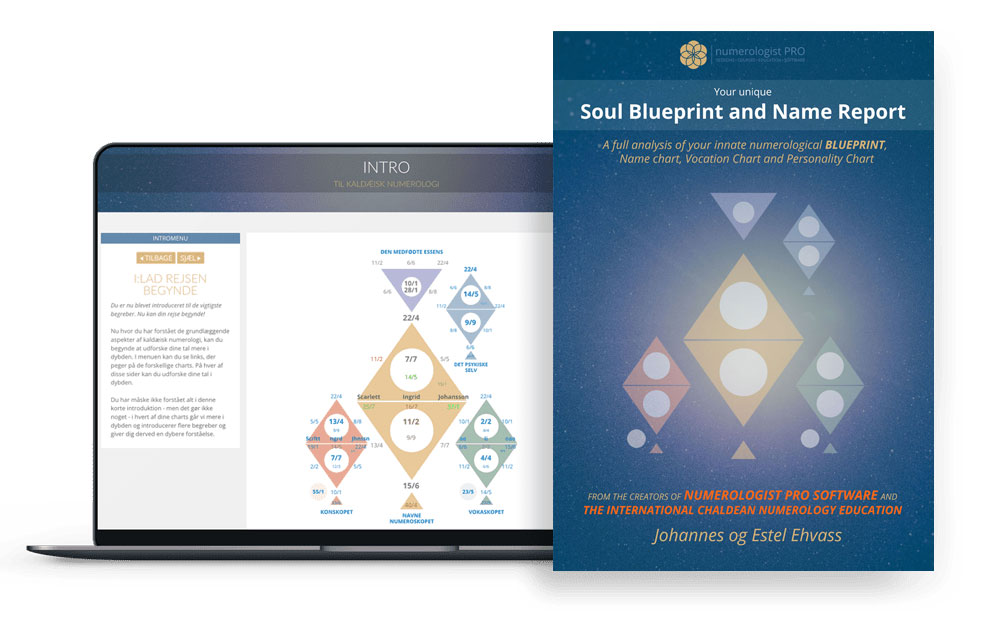Tetrabiblos

Estel Ehvass
Welcome, dear reader! Venturing into the world of Hellenistic astrology feels akin to stepping into a grand amphitheater where the stars narrate tales of ancient wisdom. Originating from the Hellenistic period of ancient Greece, this form of astrology is the foundation for many of the astrological systems we recognize today. What has always captivated me is its intricate blend of mathematics, philosophy, and spiritual insight. The Greeks, with their keen observations and profound understanding, created an astrological system that not only looked at the cosmos but also sought to explain the very essence of our souls. Join me as we delve into this fascinating realm, where celestial alignments speak of human experiences, and where the cosmos and character intertwine in the dance of destiny.
Claudius Ptolemy and the Conception of Tetrabiblos
Introduction

Claudius Ptolemy, an intellectual colossus of the Greco-Roman world, profoundly impacted various scientific fields, from astronomy to geography.
But, arguably, one of his most lasting legacies is the ‘Tetrabiblos’, a foundational work in the realm of astrology.
To understand the conception and significance of the ‘Tetrabiblos’, we need to explore Ptolemy’s milieu, his inspirations, and the wellsprings from which he drew his knowledge.
The Life and Times of Ptolemy
Ptolemy lived and worked in the 2nd century CE, primarily in the city of Alexandria, Egypt. Alexandria, with its fabled library, was an epicenter of learning and scholarly pursuits during this era. As the Mediterranean world’s intellectual capital, it was a confluence of Egyptian, Greek, Babylonian, and Persian knowledge.
Context of the Tetrabiblos
By the time Ptolemy began his work on the ‘Tetrabiblos’, astrology had been an integral part of Mediterranean cultures for centuries. The Egyptian civilization had its star-based religious and agricultural systems, while the Mesopotamians had developed an intricate system of omens and predictions based on planetary movements. The Greeks had already assimilated much of this knowledge, especially after the conquests of Alexander the Great. Ptolemy’s efforts can be seen as an attempt to systematize and rationalize these diverse astrological traditions within the framework of Greek philosophical thought.
Major Influences on Ptolemy
While Ptolemy is often credited for establishing astrology on a firm, logical foundation, he didn’t work in isolation. He was deeply influenced by:
Aristotelian Philosophy
Ptolemy’s approach to astrology was heavily influenced by Aristotle’s cosmological and metaphysical ideas. Aristotle posited a universe in which everything had a purpose and was interconnected. Ptolemy, in the ‘Tetrabiblos’, often referred to the ‘sympatheia’ (sympathy) or interconnectedness of all things, echoing Aristotle’s belief in a universe bound by relationships and cause-effect chains.
Babylonian Astrology
The detailed systems of personal horoscopes had their roots in Babylon. By Ptolemy’s time, many of these techniques and concepts had reached the Hellenistic world, and Ptolemy undoubtedly had access to some of these texts, either directly or indirectly. He would have been aware of the Babylonian focus on the ecliptic and the significance of the planets’ movements.
Egyptian Traditions
Given his location in Alexandria, Ptolemy was well-acquainted with Egyptian star lore. Egypt had a rich tradition of using the stars for religious and agricultural purposes, and the blending of these beliefs with Greek and Babylonian systems was already well underway by Ptolemy’s era.
Sources and Methodology
While Ptolemy’s exact sources remain a matter of scholarly debate, it’s clear that he had access to an array of earlier astrological texts. He often critiques, refines, or builds upon existing concepts, suggesting a deep familiarity with prior works. His systematic approach indicates an analytical mind that sought to test and refine the theories he inherited.
Empirical Evidence
Ptolemy emphasized observation and empirical evidence. While he accepted the philosophical rationale for astrology, he also believed in grounding interpretations in observable phenomena. This empirical approach is evident in both the ‘Tetrabiblos’ and his other great work, the ‘Almagest’, which deals with astronomy.
Conception of Tetrabiblos
Unlike many of his predecessors, Ptolemy sought to place astrology on a solid, rational foundation. In ‘Tetrabiblos’, he attempts to reconcile the deterministic aspects of astrology with the Greek philosophical belief in free will. For Ptolemy, the stars and planets offered tendencies or inclinations, not fixed fates. This nuanced perspective would influence astrological thought for centuries to come.
The Architecture of Tetrabiblos: Structure, Language, and Relevance
Introduction
Claudius Ptolemy’s ‘Tetrabiblos’ stands as a monumental work in the annals of astrology. Beyond its intellectual content, understanding its architecture—the structure, language, and division of topics—provides insight into the meticulous thought processes of Ptolemy and the Hellenistic academic tradition. This article delves into the fabric of ‘Tetrabiblos’ and assesses its readability and significance for modern readers.
The Structural Composition
The name ‘Tetrabiblos’ translates to “Four Books”, indicative of its four-fold structure. Each of these books serves a specific purpose and contains topics systematically arranged to provide a comprehensive overview of Ptolemy’s astrological framework.
Book I
This book establishes the philosophical foundation of astrology. Ptolemy opens with a defense of astrology, addressing its skeptics and emphasizing the legitimacy and utility of the discipline. He then delves into the broader cosmic principles that govern astrological phenomena, elaborating on the fundamental nature of the planets, stars, and their influences. The interconnectedness of the cosmos, a concept deeply rooted in Aristotelian philosophy, is central to this book.
Book II
Here, Ptolemy shifts from the general principles to specific methodologies. He details the technical aspects of constructing a horoscope, from determining the ascendant to the intricate zodiacal lots (or lots of fortune). The twelve zodiacal signs and their natures, planetary exaltations, and the system of houses (topical places in a birth chart) are also systematically discussed.
Book III
This segment delves into the nuanced interpretation of individual horoscopes. Ptolemy discusses the significance of planets in zodiacal signs and their aspects (angular relationships) to each other. Matters related to one’s lifespan, health, and personal disposition, as well as the timing of significant life events, are covered in this exhaustive segment.
Book IV
The final book broadens the scope of astrology, covering topics related to mundane astrology, which predicts world events, climatic changes, and the fates of nations. The intersection of astrology with meteorology and geography is evident here. This book is a testament to Ptolemy’s ambition to make astrology an all-encompassing discipline, relevant not just for individuals but for entire civilizations.
Language and Style
‘Tetrabiblos’ is characterized by its formal and academic prose, reflecting the scholarly standards of Hellenistic Alexandria. Written in Greek, the text is dense, analytical, and systematic. Ptolemy’s style is methodical, often beginning with general principles and gradually narrowing down to specifics. He frequently makes use of reasoned arguments, logical progressions, and empirical evidence to support his claims.
Readability for the Modern Audience
While ‘Tetrabiblos’ is undoubtedly a product of its time, its structured approach makes it surprisingly accessible to those familiar with astrological concepts. However, the text might appear arcane to the uninitiated, given its technical jargon and detailed methodologies. Modern translations, equipped with footnotes and commentary, have made the text more digestible for contemporary readers. Such versions provide context, making the ancient treatise relevant and comprehensible.
Relevance to the Modern World
‘Tetrabiblos’ remains a foundational text for anyone serious about the study of astrology. Its influence spans centuries, with its principles echoing in subsequent astrological traditions, from the medieval Arab and European astrologers to the Renaissance thinkers.
Modern astrologers, even if they don’t directly reference Ptolemy, often employ techniques and concepts that have their roots in ‘Tetrabiblos’. The treatise, with its blend of empirical observation and philosophical reflection, offers a holistic perspective on astrology that transcends its historical context. For the modern reader, ‘Tetrabiblos’ serves as a bridge to ancient wisdom, connecting contemporary practices to their historical antecedents.
Conclusion
The architecture of ‘Tetrabiblos’ is a testament to Ptolemy’s meticulous approach to consolidating and systematizing the vast knowledge of astrology. While its language might seem dense and its content exhaustive, its systematic structure and the depth of its insights make it an invaluable resource. In an age of renewed interest in ancient wisdom, ‘Tetrabiblos’ offers a profound exploration of humanity’s age-old quest to understand its place in the cosmos.

Johannes & Estel: Renowned authorities in Numerology, Astrology, and the esoteric arts. As the founders of Scandinavia's premier Numerology school, we're delighted to share our insights through this curated series on astrology. Dive in and discover the stars.
The Worlds Most Advanced Numerology Report

Your birthdate reveals your unique life purpose, potentials, talents, weaknesses, and karma in this life.
Your names show what you attract into your life regarding your career, relationships, happiness, money, and success.
GET THE REPORT HERE
Introduction to Astrology
The history of Astrology
Moving beyond deterministic astrology
Foundation of Astrology: Planets, Signs and Houses
Astrology and the Holographic Universe
The Holographic Universe
The Human Psyche as a Mirror to The Solar System
The Human Body as a Mirror to The Star Signs
Astrology Background
Egyptian Astrology
Mayan Astrology
Chinese Astrology
Indian Astrology - Jyotish
Celtic Astrology
Tibetan Astrology
Mesopotamian Astrology
Early Mesopotamian Astrology: The Dawn of Celestial Divination
Enuma Anu Enlil: The Epicenter of Babylonian Celestial Omen Interpretation
Babylonian and Chaldean Astrology
Babylonian and Chaldean Astrology
Chaldean influence and evolution
Chaldean Wisdom: Safeguarding and Transmitting Astrological Knowledge
Hellenistic Astrology
Hellenistic Astrology background
Claudius Ptolemy and Tetrabiblos
Vettius Valens
Dorotheus of Sidon
Persian Astrology
Persian Astrology background
Sassanian Astrology
Late Antiquity and The Transition Period
Late Antiquity and The Transition Period
Hellenistic to Islamic Transition: The Torchbearers of Astrological Wisdom
Islamic Golden Age
Arabian Astrology Background
Arabian Astrology Contributions
Medieval Astrology
Introduction: The Medieval Cosmos
Monastic Preservers: Astrological Knowledge in the Dark Ages
Astrology in Medieval Medicine
Kings, Queens, and Constellations: Astrology in the Medieval Court
The Church and the Stars: A Contentious Relationship
Universities and Scholastic Pursuits: Academic Astrology
Astronomy & Astrology: Tools of the Trade
Medieval Astrological Houses and the Synthesis of Traditions
Transition to the Renaissance: Humanism and the Celestial Arts
Reflections: Medieval Astrology's Echoes in Modern Practice
Astrological Art of the Middle Ages
Famous Medieval Astrologers
Medieval Astrological Texts
Renaissance Astrology
Renaissance Humanism and Astrology
Scientific Advancements and Astrology
The Social Fabric: Astrology in Everyday Renaissance Life
Court Astrologers of the Renaissance
Controversies and Conflicts: Astrology Under Scrutiny
Renaissance Texts and Authors: Continuation of a Tradition
Astrology and Art: Celestial Imagery in the Renaissance
Renaissance Astrological Practices: Evolutions and Innovations
End of the Renaissance: The Gradual Decline of Astrological Influence
Renaissance Astrology's Echo in the Modern World
Enlightenment Astrology
Introduction: The Enlightenment and Astrology
Challenging the Stars: Astrology's Critics during the Enlightenment
Astrology and the New World
Astrology in the 19th Century
The Dawn of Psychological Astrology
Astrology in the 20th Century: A Modern Renaissance
Astrological Associations and Schools
Modern Controversies and Astrology
Astrology and Popular Culture
Astrology and Technology
Current Trends and Future Directions in Astrology
Conclusion: Reflecting on Astrology's Evolution
The Planet Significances
The Sun in Astrology
The Moon in Astrology
Mercury in Astrology
Venus in Astrology
Mars in Astrology
Jupiter in Astrology
Saturn in Astrology
Uranus in Astrology
Neptune in Astrology
Pluto in Astrology
Chiron in Astrology
Black Moon Lilith in Astrology
Pars Fortuna in Astrology
Ceres in Astrology
Houses in Astrology
Introduction to Astrological Houses
The Angular Houses
The Succedent Houses
The Cadent Houses
The 1st House
The 2nd House
The 3rd House
The 4th House
The 5th House
The 6th House
The 7th House
The 8th House
The 9th House
The 10th House
The 11th House
The 12th House
Interaction Between Houses
Derived Houses, House Rulers, and Interceptions
Conclusion: Synthesizing House Knowledge
All Materials © 2023 & 2024 Numerologist PRO
Terms of Service: Information provided by Numerologist PRO and/or from this web site is not intended as advice (medical, psychological, financial or other), nor is it intended to replace your work with a qualified professional (medical or otherwise). You should maintain your relationship with your providers and consider the services of this site as informational only. Any information, stories, examples, or testimonials presented on this website do not constitute a warranty, guarantee, or prediction regarding the outcome of an individual. This web site is a sharing of knowledge and information of numerology/energy work based on the experiences of Numerologist PRO. You are encouraged to make your own decisions based on your own research and inner guidance. By booking and receiving services, you agree to fully release and hold harmless Numerologist PRO and all it's affiliated numerologists from and against any liability or claim that may arise out of or in connection with their service(s).
Numerologist PRO © 2021

CONTACT
numerologist@numerologistpro.com
LIKE US, and get free numerology tools, info about your personal numbers, best business dates of the year - and more!
YOUR FREE NUMEROSCOPE CHART
Enter your name and email below and get access to our free online numerology chart tool.